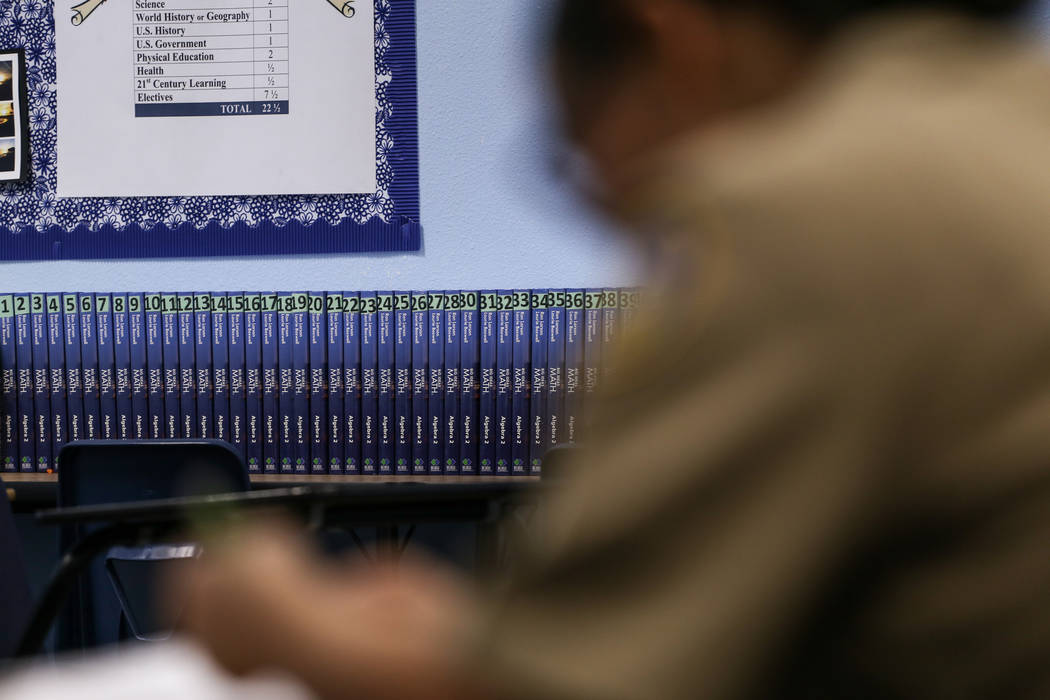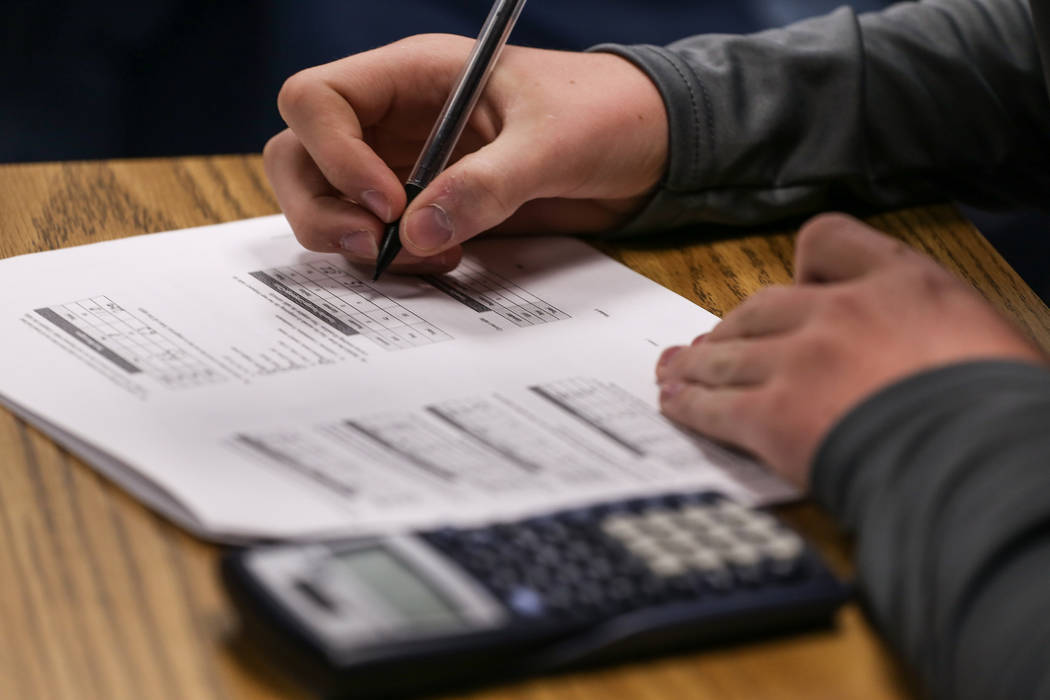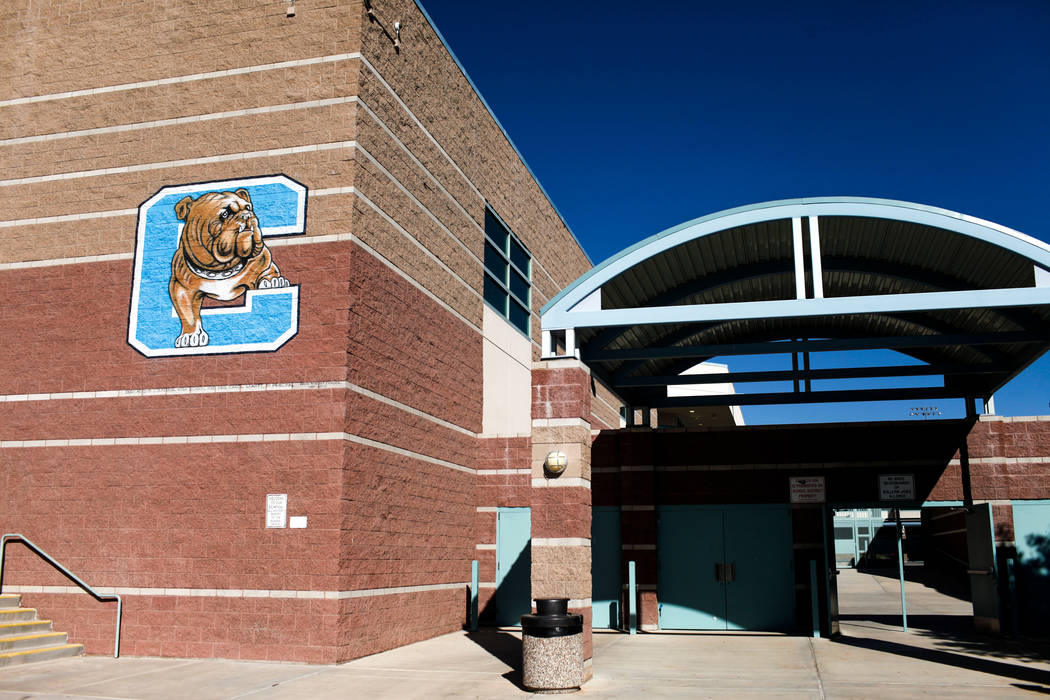Nevada students may soon face added math, science requirements
Nevada may soon join a handful of states that require students to pass four credits of math to graduate high school, a move critics say would limit student choice.
“I really strongly disagree that four years of math are required for students to be college and career ready,” Jesse Welsh, an assistant superintendent in the Clark County School District, testified at a state education workshop last month. “This is coming from a former math teacher.”
The state is planning to revamp graduation requirements for students in the class of 2022, who will be high school freshman in the fall of 2018.
At the moment, the plan includes adding one credit apiece of math, science and social studies to current requirements.
At a workshop in October, local school officials were expecting State Superintendent Steve Canavero to solicit comments on a plan that would include one additional science or one additional math credit — not both — to the graduation requirements.
Instead, the plan presented included an additional math and an additional science credit at the request of the state board’s High School Graduation Committee, chaired by state Board of Education member Mark Newburn.
“I have been working on raising the requirements for the standard diploma for several years,” he said. “Research from NSHE (the Nevada System of Higher Education) indicates that the total math and science credits a student takes in high school is a strong predictor of initial success in college.”
No decision has been made yet, and the comments made at the workshop were to be further discussed by the graduation committee before any changes are adopted and implemented.
And that raised another concern: the longer it takes to decide, the harder it’ll be for schools to comply for the fall of 2018.
“This could really change the way we do business in a really short period of time,” said Lindsay Anderson, government affairs director for the Washoe County School District. Anderson said starting in fall 2019 for the Class of 2023 would provide a better cushion.
A numbers game
To earn a standard high school diploma in Nevada now, students must earn 22.5 credits — 15 credits from core courses and another 7 1/2 from elective courses. In addition to bolstering math and science requirements, the state wants to up the number of required credits to 23.
At issue is whether reducing elective credits at the expense of core courses serves students.
The proposal to add one more credit of math, science and social science, for example, would cut to five the number of elective credits needed to graduate.
That move would penalize students who enroll in career technical education courses, which provide job skills, some principals said.
“It will force some of our kids to make decisions where they may not take CTE courses where we can give them mentors and get them into job-shadowing programs,” Centennial High School Principal Trent Day said.
State Superintendent Steve Canavero countered that some CTE courses may be able to fill a math or science requirement.
“I think there’s a number of opportunities where students can have both,” he said.
A magic number?
Another concern aired at the workshop was that the new requirements would leave students little room for error to graduate on time, especially since most high schools operate on a six-period day.
“We’re assuming a student never fails a class,” said Southeast Career and Technical Academy Principal Kerry Pope. By the end of the first quarter, about 200 of her freshman are on track to fail a class, she said, adding that number drops by the end of the first semester because of interventions.
Some schools, including Rancho and Bonanza high schools, have already moved to a seven-period day, but that requires careful planning and coordination, said Rancho Principal James Kuzma. He said the seven-period day, which creates an opportunity to earn more credits, could be impemented at all schools if the state could provide additional funding.
Requiring four years of math is becoming more common, said Jennifer Zinth, the director of high school and STEM at Education Commission of the States, a nonprofit that studies education polices across the country.
So far two states, Florida and Texas, increased the math requirement to four credits then reversed course and went back to three, but most states that added a fourth-credit requirement have held their ground, she said.
“It’s actually increasingly normal,” she said, adding the move is partially in response to students taking three years of math and graduating high school but needing remediation courses in college. “Sometimes they’ll even specify one of those math credits have to be taken senior year.”
Contact Meghin Delaney at 702-383-0281 or mdelaney@reviewjournal.com. Follow @MeghinDelaney on Twitter.































